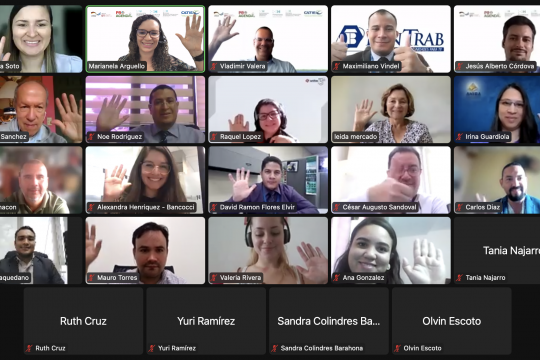Leida Mercado, EfD Central America Senior Researcher, and Marianela Arguello, EfD Central America Communication Officer, have worked with a team of climate financing experts to design and implement a Climate Financing Course for Honduran Institutions. More than 20 representatives from public and private institutions, civil society, and the academic sector of Honduras participated in the course.
The course was divided into four learning modules. The first module dealt with the conceptualization of climate financing and its application to different sectors. The second module addressed the climate financing mechanisms and the third module, the formulation of bankable climate projects. Finally, the last module was about transformative economical approaches, including the circular economy.
Positive learnings
Maximiliano Vindel Espinoza, risk manager at the bank BanTrab, in Honduras, was one of the participants in the course. He considers that learning about the international policies on climate change, and the global interest in addressing climate change problems through mitigation or adaptation projects was the most valuable part of the training.
"The course will facilitate my professional performance because I now know the sources of information and have the access to a network of contacts that can provide the needed advice."
"The participants expressed their satisfaction with the activities and assignments, and the learnings shared during each of the sections," said Marianela Argüello, who oversaw the pedagogical support during the course.
Climate Financing Challenges
One of Hondura's main climate financing challenges is the lack of human and institutional capacities to face the country's commitment to the UN's Agenda 2030. In 2021, the country agreed to adopt an investment plan with a climate change financing strategy, including the architecture of carbon markets.
This course will strengthen the country's capacities to plan, assess, implement, and monitor climate financing processes, among other aspects.
About the course
The course was part of a project called Pro Agenda, implemented as technical cooperation between Honduras and Germany, by the German Agency for International Cooperation (GIZ) and financed by the Federal Ministry of Economic Cooperation and Development of Germany (BMZ).
By: Marianela Argüello L.
